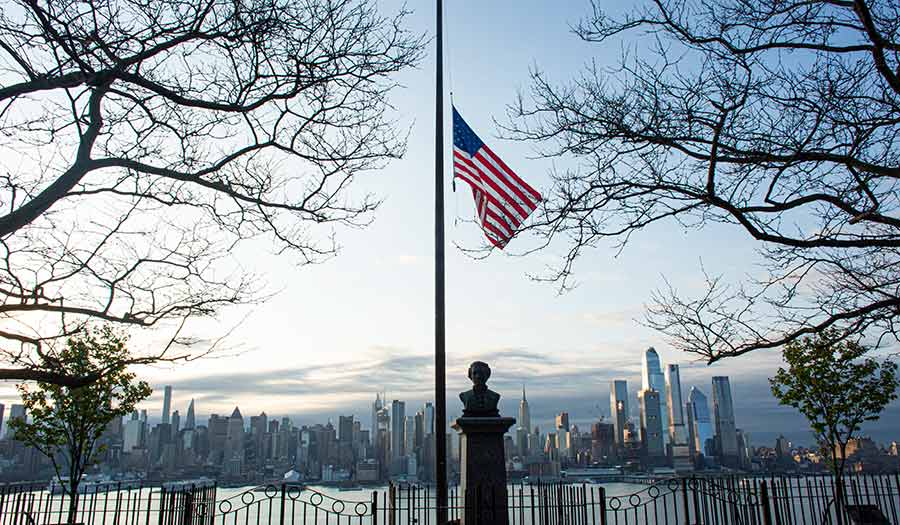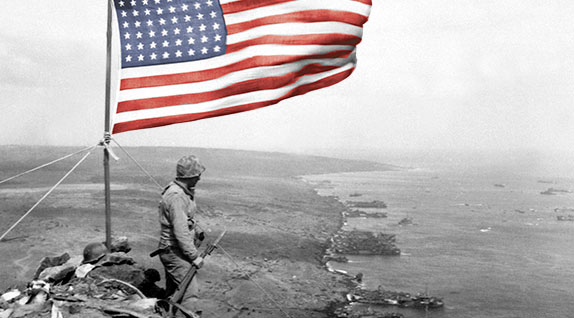
Article
Learn the why behind the headlines.
Subscribe to the Real Truth for FREE news and analysis.
Subscribe NowFor most Americans alive today, the idea of shared national sacrifice is a collective abstraction, a memory handed down from a grandparent or passed on through a book or movie.
Not since World War II—when people carried ration books with stamps that allowed them to purchase meat, sugar, butter, cooking oil and gasoline, when buying cars, firewood and nylon was restricted, when factories converted from making automobiles to making tanks, Jeeps and torpedoes, when men were drafted and women volunteered in the war effort—has the entire nation been asked to sacrifice for a greater good.
The civil rights era, Vietnam, the Gulf wars, 9/11 and the financial crisis all involved suffering, even death, but no call for universal sacrifice. President George W. Bush encouraged people to buy things after the terrorist attacks to help the economy—“patriots at the mall,” some called it—before the full war effort was underway. People lost jobs and homes in the financial crisis, but there was no summons for community response.
Now, with the coronavirus, it is as though a natural disaster has taken place in multiple places at once. Millions of people will lose their jobs. Businesses will shutter. Schools have closed. Thousands will die. Leaders ordered citizens into isolation to stop the virus’ march.
Suddenly, in the course of a few weeks, John F. Kennedy’s “ask what you can do for your country” injunction has come to life.
“This is a new moment,” said Jon Meacham, a historian and author of The Soul of America.
“Prolonged sacrifice isn’t something we’ve been asked to do, really, since World War II,” Mr. Meacham said. “There was a kind of perpetual vigilance in the Cold War—what President Kennedy called ‘the long twilight struggle’—but living with the fear of nuclear war is quite abstract compared to living with the fear of a virus and of a possible economic depression.”
New Reality
When coronavirus began to spread in the U.S., many saw the shelter-in-place orders as a personal affront.
“A request to do anything becomes a point of attack, and we are always 10 steps back from where we should be on big legislative agreements,” said Julian Zelizer, a professor of history at Princeton. “So intense polarization in a moment of crisis…make this much more difficult.”
That has not been universal. Ohio’s Governor Mike DeWine moved swiftly to shut down most activity in his state and he implored Ohioans to help.
“We have not faced an enemy like we are facing today in 102 years,” Mr. DeWine said as coronavirus started to spread in the state. “You have to go back to the 1918 influenza epidemic. We are certainly at war…In the time of war, we must make sacrifices, and I thank all of our Ohio citizens for what they are doing and what they aren’t doing. You are making a huge difference, and this difference will save lives.”
As a nation, Americans are accustomed to seeing swaths of the country destroyed by hurricanes, floods, wildfires and blizzards. But there is then a season of rebuilding and renewal. The coronavirus, with its rapid spread, is giving Americans a public-health Katrina that knows few borders or boundaries, even though some parts of the country are suffering far more than others.
For most at this point the sacrifices have been mere inconveniences. No restaurants or movie theaters. Maybe the need to buy exercise equipment because the gym has closed.
Yet, as the COVID-19 lockdown wears on, how will we react?
Lean Times
“We used to tax in times of crisis. Now we don’t,” Mr. Zelizer said. “We asked people to ration in times of crisis. Now we don’t. We asked people to serve in times of crisis. Now we don’t. So this is a sea change. The thing is, Americans might not have a choice.”
For many, the choices are personal and painful. In March, Representative Abigail Spanberger could not see her parents or her in-laws for the foreseeable future because she may have been exposed to the virus. At the time, however, she saw the impact of the virus in many other ways that are far more harmful.
“I think we are at the beginning stages of people understanding what the sacrifice is,” Ms. Spanberger said. “People with loved ones in nursing homes are told they can’t go visit their loved ones. That brings it home. For people who have kids, trying to explain why they can’t go to school, can’t have playdates, can’t see friends, can’t see family members.
“It is this element of everyone needs to disrupt their lives so that other people won’t die,” she said. “It’s different than eating less meat because of war or working in a factory because a husband is overseas. But you also can’t engage with the community, so it makes it harder. You can’t lean on your social circle, church, or school. All of those things are taken from us trying to keep people safe.”
With people being asked to sacrifice their jobs, their children’s education, their ability to commune with family and friends, Ms. Spanberger said, “the depth of empathy that that should be available and the strength of concerns over these decisions needs to be unparalleled and we do not see that, at least not from the administration.”
One can hope this time of crisis pushes American’s to put aside differences, band together, and tackle the problems head on, even if it requires painful sacrifice.
Yet the coronavirus lockdown—and the economic fallout from it—should do something else. We should realize how good we have it in the United States. God has blessed this nation with unmatched abundance for many decades.
When times were good, we forgot this. We became complacent and failed to appreciate what we have. Lean times, on the other hand, should splash ice-cold water on our collective consciousness. It should force us to ask: “Why have we been so clearly blessed in ways the rest of the world can only dream?”
God’s Word actually answers this question in no uncertain terms. The Bible details why the United States rose to such high heights—and also reveals why it is going through tough times now. Read America and Britain in Prophecy to put any sacrifice required today into proper perspective.
This article contains information from The Associated Press.
- Real Truth Magazine Articles
- AMERICAS
 What Happened to American Pride?
What Happened to American Pride?


